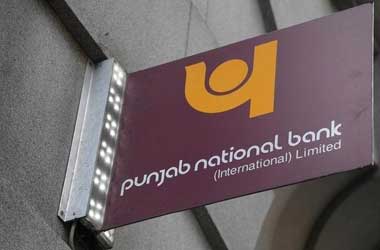 India’s Punjab National Bank announced earlier this week that it had lost about $1.70 billion (~Rs. 11, 400 crores) in one of its branches, mainly due to two officers who worked hand in glove with billionaire diamond jewellery merchant Nirav Modi. The fraud has shaken the Indian banking industry and investigative agencies are struggling to find out how the largest financial fraud that took place in the country went undetected for years. Nirav Modi, who was already under federal investigation following a PNB complaint on 29 January about fraudulent transactions of $40 million (~Rs280 crores), is believed to be staying in a New York hotel currently.
India’s Punjab National Bank announced earlier this week that it had lost about $1.70 billion (~Rs. 11, 400 crores) in one of its branches, mainly due to two officers who worked hand in glove with billionaire diamond jewellery merchant Nirav Modi. The fraud has shaken the Indian banking industry and investigative agencies are struggling to find out how the largest financial fraud that took place in the country went undetected for years. Nirav Modi, who was already under federal investigation following a PNB complaint on 29 January about fraudulent transactions of $40 million (~Rs280 crores), is believed to be staying in a New York hotel currently.
In 2017, Nirav Modi, founder of the $2.3 billion Firestar diamond brand, was ranked #57 in the Forbes list of India’s billionaires. The case clearly reflects how the SWIFT system was misused to orchestrate the scam.
How Punjab National Bank Was Taken For A ride?
Without authorization, PNB employees issued so-called letters of undertaking, or LoUs (essentially guarantees) to Modi’s companies. The letter was used to raise credit from other banks, making PNB liable for payments. The process involves an inssuing bank, a receiving bank, an importer and a overseas partner or exporter who will be the ultimate beneficiary of the issued letter.
The message was sent through the SWIFT (Society For Worldwide Interbank Financial Telecommunication) messaging system. As SWIFT is not connected to the bank’s core banking system, the transaction went through unnoticed by the bank’s top management.
Indian banks usually undergo four types of audits: statutory audit (which looks into bank balance sheets), internal audit (done by bank staff), concurrent audit (an audit of transactions done as they happen by internal or external auditors), and inspection by the Reserve Bank of India. The question is who could have detected these unauthorized transactions. The officials who had helped them earlier had retired.
To evade the core banking system, the officials had used the SWIFT system to route the transaction. The SWIFT messaging system is more or like an SMS or WhatsApp service. The matter came to light when three of the firms which have been issued the letter claimed the money on the basis of the letter. The second largest public sector bank initially denied as there were no records of the transactions. That is when PNB started investigating the matter.
Arguably, the $1.80 billion scam could have been averted, if the bank had used block chain technology, instead of the SWIFT system.

 United States
United States United Kingdom
United Kingdom















